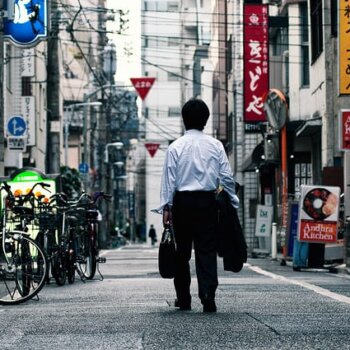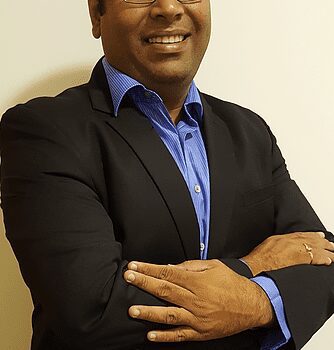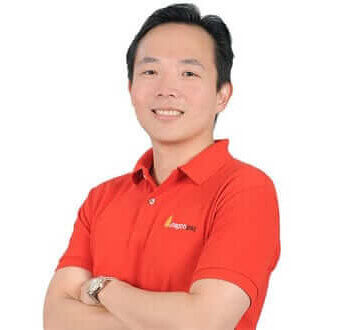I first met Simon at a networking event where he was live tweeting the panel discussion. I have since had the opportunity to get to know him better and have become a huge fan of his work. Whilst Social Media is his main area of expertise, it is his understanding of human nature and desire to learn more that allows him to have such a huge impact with the clients he works with.
What’s your story?
I’m Simon, a Scotsman living in Singapore. I started the Asian arm of We Are Social, a social marketing agency, back in 2011. Before We Are Social, I had an eclectic career across interpreting, management consulting, marketing strategy, media planning and advertising. Outside of work, I like to produce my own music and share my love for whisky.
What excites you most about your industry?
I like helping other people solve their problems, and achieve the things they care about. The marketing industry is also obsessed with progress, and although the people in the industry can be quite jaded and cynical, the work itself is inherently optimistic and exciting. There’s also a lot of creativity and variety, which helps stimulate my restless mind.
What’s your connection to Asia?
I started coming to Asia as part of on-going consulting work for Unilever when I was living in London in my mid-20s. I fell in love with Asia’s optimism, and the friendliness of everyone I met. That, the delicious street food I kept finding everywhere I went, and the considerable temperature difference compared to a London winter all convinced me to move here for good in 2007.
Favourite city in Asia for business and why?
Has to be Singapore – it’s so easy to get things done. The infrastructure is so reliable, it’s incredibly easy to set a business up, and the administrative obligations are minimal. The tax system seems fair too, so I’d say I’m an all-round fan.
What’s the best piece of advice you ever received?
I’m going to be annoying and go for two bits of wisdom:
1: Frustration is the mother of innovation. If something regularly bothers you, there’s a good chance you can build a business out of improving it, and it’s better to be an entrepreneur than a complainer.
2: Communication is about what other people understand, not what you say. Too much business communication – especially marketing – obsesses about the message instead of the take-out. Build outcomes, not outputs.
Who inspires you?
A very diverse group of people! Seth Godin and Clay Shirky have been instrumental in shaping my marketing thinking, but I meet hundreds of people every day on social media and via the internet that shape and change my views and thinking. They all have one thing in common though: they take the time to share their thoughts and offer value to people before they ask for something in return. That’s probably what makes them inspiring.
What have you just learnt recently that blew you away?
I read this fascinating piece from McKinsey yesterday, which explains how to identify the real influencers in a community. It is very useful for anyone who needs to implement change in an organisation, but is also very helpful for anyone who wants to harness the power of influence in social media.
If you had your time again, what would you do differently?
I’d be more confident that the things that I believe in and that I’m passionate about are worth chasing and investing in. It took me a long time to realise that it’s a lot easier to follow your own dreams than it is to try to achieve someone else’s definition of success.
I’d also invest more time and effort (and perhaps money) in my hobbies. A good hobby that you can enjoy over the longer term, and that feeds your soul, is a critical part of succeeding in all aspects of your life. When I was younger, I thought of my hobbies – especially making music and DJing – as ‘less valid’ than my work commitments or social activities. Now I wish I’d made better use of all the ‘spare’ time I had as a teenegaer and young adult to pursue those passions more freely, because they’re an essential balance to the kind of work and thinking I do during my ‘day job’.
How do you unwind?
I make music and I DJ. I’m not sure that actually ‘unwinds’ me in the classic sense, though – I love techno, and its energy probably winds me up as much as the escapism helps me relax. I also love whisky, and I organise regular tasting nights as part of the Singapore Whisky Society, which I really enjoy. When it comes to completely unwinding, I love to curl up on the sofa with my wife and watch a David Attenborough documentary or Studio Ghibli movie.
Favourite Asian destination for relaxation? Why?
Oh, that’s a tricky one. I’m caught between the serenity of Ubud in Bali, and the amazing food and massages of Bangkok. Relaxation almost always needs to include food for me, and those places really appeal to my taste buds.
Everyone in business should read this book:
‘The Idea Virus’ by Seth Godin – you can download / read it for free here.
Shameless plug for your business:
We Are Social helps companies to build social thinking into everything they do – not just into their social media. That may sound a bit confusing, but being a very social business, we offer plenty of free resources to make it as easy as possible; you can find all those resources here.
How can people connect with you?
The best way to get me is on Twitter, where you’ll find me as @eskimon. You’ll also find our contact email address on our website: http://wearesocial.sg. If you’d like to connect professionally, you’ll find me here on LinkedIn too.
This interview was part of the Callum Connect’s column found on The Asian Entrepreneur:
Callum Laing has started, built, bought and sold half a dozen businesses in a range of industries across two continents. He is the owner of Fitness-Buffet a company delivering employee wellness solutions in 11 countries and he is also the CEO of Entrevo Asia, a company that runs 40 week Growth Accelerator programs.
Take the ‘Key Person of Influence’ scorecard <http://www.keypersonofinfluence.com/scorecard/>
Connect with Callum here:
twitter.com/laingcallum
linkedin.com/in/callumlaing
Get his free ‘Asia Snapshot’ report from www.callumlaing.com































